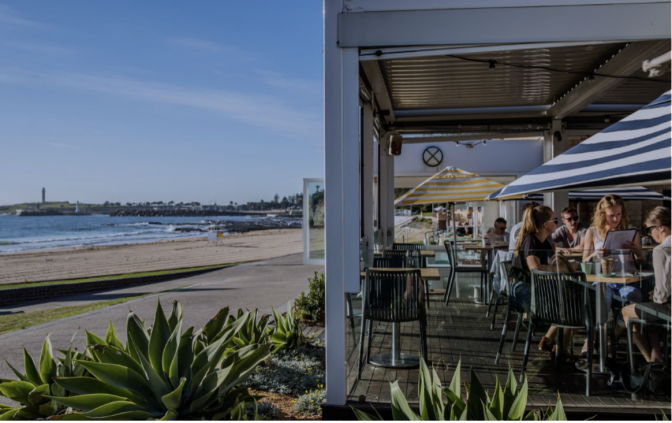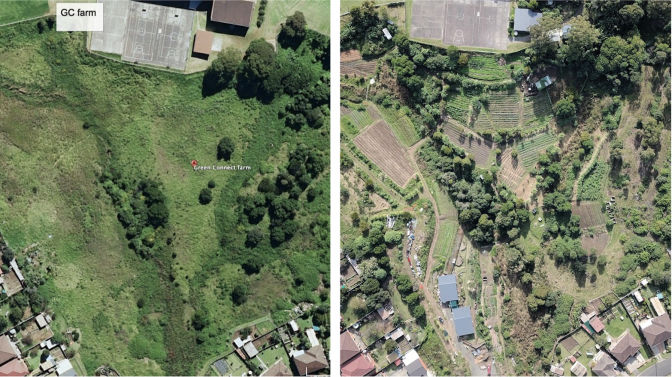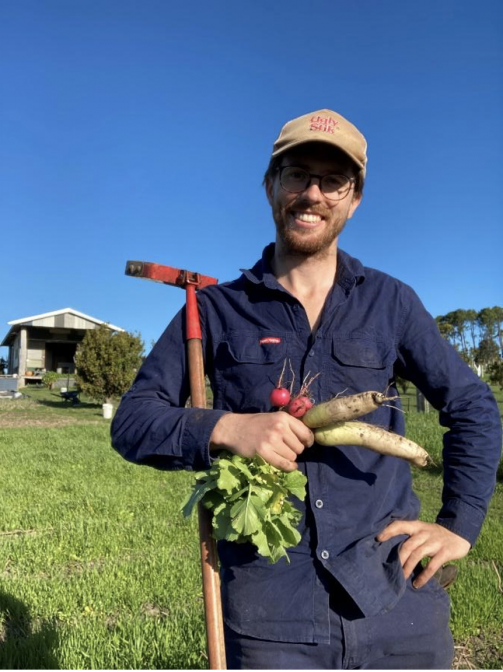How does ‘closing the loop’ look for cafes now and into the future?
Sam Quirk, Market Gardener, Researcher, and Sustainability ConsultantDivergent Food Waste pathways in an emerging Circular Economy: How does ‘closing the loop’ look for cafes now and into the future?
- Corporate and commercial scale composting currently dominates most food waste circular economy practices but offers little traceability.
- There is strong interest in, and support for, a ‘Café to Farm to Café’ Circular Economy approach that would create a ‘closed loop’ cycle in which composted food waste from local cafés feeds local urban farms, with produce from those farms in turn being purchased by the cafés.
Governments throughout Australia, particularly the NSW government and Victorian government, are taking steps to prevent food waste from entering landfill by integrating Circular Economy (CE) principles into food waste management. To date, there has been significant investment in large-scale food waste processing and collection services as well as education campaigns. However, smaller-scale forms of recirculation have attracted much less attention. At the same time, the burgeoning popularity of ‘closing the loop’ raises questions about more transformational change, for example through the reintegration of retail food waste into food production processes.
To understand the transformative possibilities of connecting local cafés with urban farms, I investigated the food waste practices of 10 cafés in Wollongong. Located 150km south of Sydney, Wollongong is characterised by coastal beaches and forested escarpments where commitments to sustainability are entangled with post-industrial transformation. I wanted to understand how cafés treated and valued food waste. What did they do with their food waste, and what factors influenced their ability to recycle food waste? I also asked participating café owners and managers a bigger question: would they partner with an urban farm to process their food waste?
Three Circular Economy approaches of Wollongong cafés
Cafés are interesting places to better understand how people, businesses and communities relate to food waste. They are places of consumption but also production. They are entwined in global supply chains, yet embedded in place and reflective of their community. Cafés therefore offer insights into the factors shaping business food waste practices across a continuum of waste/sustainability.
Figure 1: Diggies Café at North Wollongong Beach

(Source: Diggies)
Most cafés in my study were already repurposing food waste using three different approaches:
- First, the Corporate Solution encompassed the cafés that used waste service providers, like Soilco (local large-scale composter), to collect and transport waste back to large-scale composting facilities. While this keeps food waste out of landfill, there is little traceability to where the product ends up.
- Second, the Hacked Solution comprised cafés appropriating the Wollongong Council run Food Organics Garden Organics (FOGO) residential service. Here a café would be annexed to a residential building and use the adjacent residents’ FOGO bin (or in some cases the café owner lived in the building with access to Council FOGO bin). This food waste then goes to the same facility at Soilco and enters the same process.
- Third, the Do It Yourself (DIY) Solution was an umbrella term for practices like on-site compost piles at home or work, and sharing coffee grounds and food waste with people, community gardens and schools. Some cafés had a mix of these types and only one café didn’t recycle food waste (sending it to landfill).
The rationale and reasons for these different approaches reflected the place-based cultures of cafés.
For example, the amount of waste generated was important: some cafés had too much waste for DIY, some not enough for the corporate solution. The location of the café was also important – for example, whether they had access to a council FOGO bin or how close they were to industrial-scale processing facilities.
Sustainability values were also important. Located along 60km of uninterrupted surf coast beaches, the sustainability orientations of the community influenced what cafés would do from a reputational perspective, though this shifted depending on the café’s location. Decisions were therefore not merely transactional but shaped by place and cultural values.
This is relevant as current CE policies tend to focus on the quantity of waste that can be diverted from landfill rather than how the recirculation of resources benefits local communities.
Current CE policies tend to focus on the quantity of waste that can be diverted from landfill rather than how the recirculation of resources benefits local communities.
From café to farm
My research also explored the potential for cafés to return food waste to the soil through partnering with a popular urban farm, Green Connect. Green Connect is a social enterprise with multiple business arms, including Fair Food. Fair Food is an 11-acre permaculture farm which creates employment opportunities for former refugees and young people. Fair Food staff had been interested in recycling the community’s food waste through composting to increase organic matter and soil life and boost productivity.
Figure 2: Green Connect Farm evolution - Left: Unused Lot in 2013; Right: the Green Connect Farm in 2021

(Source: Green Connect)
Asked how they felt about a waste service provided by a local urban farm, all participants responded with excitement. While there were anticipated challenges around pick-up timing and adjustments in bin size, café managers saw clear benefits in knowing that the food was entering back into the local food system. This contrasts with the other solutions where localised nutrient recycling cannot be guaranteed.
For many cafés, the greatest potential in this waste solution was connecting it to food supply. There was a strong demand to link food waste collection with the supply of local produce to the cafés by an urban farm such as Green Connect. Cafés suggested discounts on the service fee could be provided if they brought food from Green Connect, or discounts on food if they used the waste service. Café managers felt that knowing food waste was going back to the farm would encourage staff to think twice when contaminating the food waste bin but also think more carefully about wasting food. Cafés were also interested in the reputational benefits of working with a businesses like Green Connect, a name that is recognised and respected in the community.
Undoubtedly, there is demand in Wollongong for alternative food waste solutions that move beyond the corporate or commercialised solutions that currently dominate the market and attract the most funding. There is a space for multiple solutions, each occupying a particular niche and covering the gaps left by other systems at different scales. Urban agriculture has an important role to play in this. However it requires more investment in placed-based solutions that connect local food businesses to urban farms, creating a circular economy that creates direct benefits for soil health and community wellbeing.
About the Author: Sam Quirk

Sam is a Market Gardener at Mountain Ridge Wines in Shoalhaven Heads, a Sustainability Consultant at Rana Environmental and a keen researcher currently living in Wollongong. Last year he completed an Honours Thesis titled ‘The Geographies of Food Waste Recycling: ‘Closing the Loop’ between Cafés and Urban Agriculture’ through the University of Wollongong’s School of Geography and Sustainable Communities, achieving First Class Honours. His currently interested in and exploring the areas of Circular Economy, Food waste, Urban Agriculture, Composting and Regenerative Agriculture.
Contact
Email: [email protected]
Linkedin: https://www.linkedin.com/in/sam-quirk-9b79b7205/
Learn more about University of Wollongong’s School of Geography and Sustainable Communities.